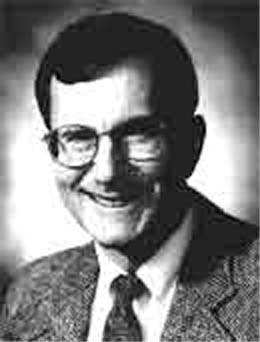
Philippines RPCV Allan M. Winkler says the World is wondering what we're doing
World is wondering what we're doing
Jun 11, 2004
Cincinnati Post
by Allan M. Winkler
It's not easy being an American abroad these days.
I've just returned home after spending six months in Kenya and Tanzania, and then another three and a half months in New Zealand, and everywhere I went I encounter the most vociferous opposition to the American war in Iraq.
"What is President George Bush trying to do?" people asked. Why is the United States waging such a relentless and wrong-headed campaign, for reasons that often appear to be outright lies? What does your country hope to achieve?
I felt much like I did when I was a volunteer in the fledgling Peace Corps in the 1960s. At that time, I worked for two years in the Philippines.
When I went overseas in 1967, most of us opposed the war in nearby Vietnam. We were nominally responsible to the American State Department and to the Embassy of the United States in Manila. But the whole point of the Peace Corps was to provide a different kind of grassroots diplomacy, and so we seized the freedom to speak out in opposition to what virtually everyone now concedes was a monumental mistake, but we did so as quietly and gracefully as we could. We never censored what we said, but we chose not to put our criticisms of the Vietnam war in print.
Over the course of the past year, when asked about the war in Iraq, I had no choice but to agree with the implicit and explicit critique of American policy I inevitably heard. Sadly, I shook my head, acknowledged the validity of the charges raised, and observed that I couldn't understand what was going on either.
Mercifully, I seldom encountered hostility to Americans as people. Such is not always the case, I know, and I have heard numerous stories of young Americans posing as Canadians to avoid having to answer the embarrassing questions that arise if they acknowledge their real nationality.
The people I encountered in East Africa and Down Under were invariably courteous and congenial and never made me feel like a pariah because of what my government was doing in the Middle East. But how long can this relatively sanguine state of affairs last?
When I grew up in the 1950s, I remember reading a book entitled "The Ugly American," which described the insensitivity of American foreign policy and the inability of many Americans to understand the beliefs and attitudes of people elsewhere on the globe. For a time, particularly after the war in Vietnam, we seemed to be doing better at listening to others, particularly as the long and corrosive Cold War came to an end.
But now we seem to be drifting back to a position that former Senator J. William Fulbright once called the "arrogance of power."
I recently went to Princeton University for the graduation of my nephew Mike. The Class Day speaker was Jon Stewart, the television commentator who provides his own iconoclastic and wildly funny take on the news. He spent part of his time reflecting on American policy in Iraq and had the huge crowd in stitches. But each time I stopped laughing, I was haunted by the thought that things there are only likely to get worse.
At the graduation ceremony itself, my family and I found ourselves sitting behind Russell Baker, the former New York Times writer whose columns appeared three times a week for more than 20 years. I mentioned how much I enjoyed those columns, with their wry sense of humor that tempered his criticisms of American policy or his reflections on human frailty without undermining his fundamental message. We need someone like him today as we struggle with similar problems, to help our government come to its senses and to make it easier for those of us who venture abroad.
Allan Winkler is a history professor at Miami University.
